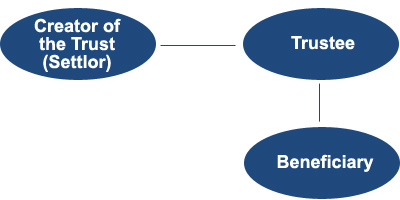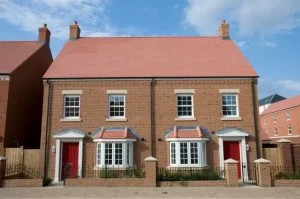Setting Up a Trust in the UK
Protecting the hard earned money that you’ve made up to this point is very important….
Protecting the hard earned money that you’ve made up to this point is very important. But if all you’re doing is throwing it into a savings account, you might not be doing everything that you can to really preserve wealth. If you’re worried about your heirs having a solid future, then you might want to go about setting up a trust in the UK.
Now, you might assume that only the rich need to concern themselves with trusts. This is just not true at all. Did you know that trusts are actually found all over the world? In the UK, trusts are all about looking after assets for people. Assets can be property, investments, land, buildings, or plain old money.
According to the HMRC, the definition of a trust is:
a legal arrangement where one or more ‘trustees’ are made legally responsible for holding assets. The assets – such as land, money, buildings, shares or even antiques – are placed in trust for the benefit of one or more ‘beneficiaries’.
The trustees are responsible for managing the trust and carrying out the wishes of the person who has put the assets into trust (the ‘settler’). The settler’s wishes for the trust are usually written in their will or set out in a legal document called ‘the trust deed.

Now, you might wonder what the purpose of a trust would actually be. A lot of UK asset holders have different reasons for trusts. They might want to control and protect the assets the family has worked hard to get, or they want to have money set aside for someone that’s too young to handle their affairs directly yet. Trusts can also be used to pass on money or property while you are still living. There are also non family trusts — these are used to set up charities or to give employees a pension (in the case of a business).
The cash and investments held in a trust can be referred to as a trust capital or a trust fund. The fund can also produce income through interest on savings or dividends on shares. Assets can also be sold and the gains go back into the trust.
A settler is the person that puts assets into the trust. A lot of people forget that you can add assets into a trust, which means that you have control over how the trust grows. Instructions about the trust are set into a trust deed, which controls how the trust is used.
Trustees are the legal owners of the assets held in a trust. The role of a trustee is very important, as they have to manage the trust on a day to day basis. There are still tax implications for a trust, which means that they have to handle how that goes down. You can’t just assume that the trust will automatically be fine. You have to do anything that you can to make sure everything is in proper order.
The trustees will also be investing the trusts’ assets for maximum profit to the trust. There’s usually two trustees — a family member and a lawyer.
Getting more information on trusts from a qualified professional is a must. Go with a solicitor or a tax adviser — they’ll be able to get you back on the right path in virtually no time at all!




